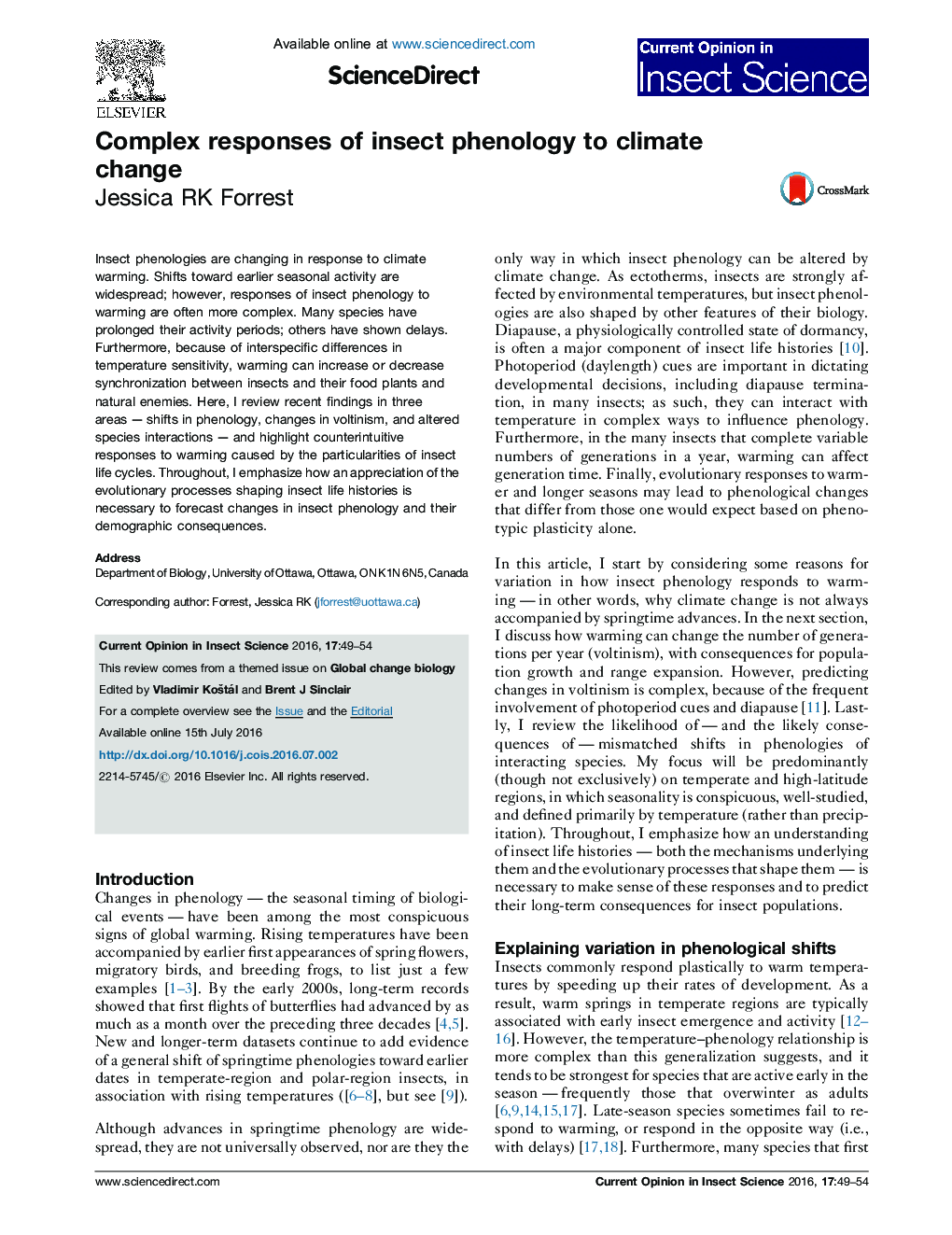| Article ID | Journal | Published Year | Pages | File Type |
|---|---|---|---|---|
| 6374023 | Current Opinion in Insect Science | 2016 | 6 Pages |
â¢Climate change can alter insect phenology in complex and counterintuitive ways.â¢Advances in springtime phenology with warming are widespread but not universal.â¢Voltinism can increase with warming, but diapause schedules may interfere.â¢Interactions with other species can be altered by independent shifts in phenology.â¢Forecasting changes in phenology requires understanding of insect life histories.
Insect phenologies are changing in response to climate warming. Shifts toward earlier seasonal activity are widespread; however, responses of insect phenology to warming are often more complex. Many species have prolonged their activity periods; others have shown delays. Furthermore, because of interspecific differences in temperature sensitivity, warming can increase or decrease synchronization between insects and their food plants and natural enemies. Here, I review recent findings in three areas - shifts in phenology, changes in voltinism, and altered species interactions - and highlight counterintuitive responses to warming caused by the particularities of insect life cycles. Throughout, I emphasize how an appreciation of the evolutionary processes shaping insect life histories is necessary to forecast changes in insect phenology and their demographic consequences.
Graphical abstractDownload full-size image
